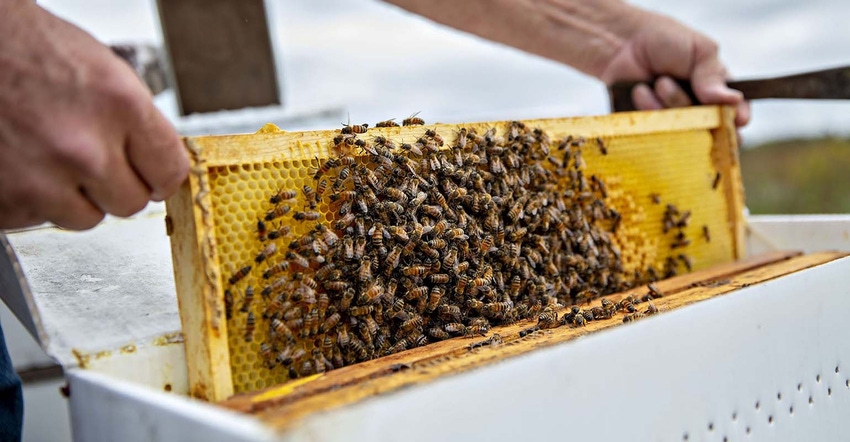
By Jen Skerritt
Technology used to develop COVID-19 vaccines may also help combat a honeybee-killing pest.
GreenLight Biosciences is developing an RNA-based syrup to attack varroa mites, a parasite that attaches itself to honeybees and feeds off them while spreading diseases. The RNA acts as an “off switch” that interferes with the mites, disrupting their ability to lay offspring that attach to bees, said Mark Singleton, chief commercial officer and general manager of plant health at the Boston-based firm.
“We are really putting a dent in the ability of mites to reproduce,” he said.
Anecdotal feedback shows that hives using his company’s treatment are healthier and have a higher survival rate, according to Singleton, whose biotech firm worked with large-scale U.S. beekeepers to test the technology.
Varroa mites are thought to be one of the reasons behind the staggeringly high death rates that have become so common among honeybees. Catastrophic bee deaths in Canada this year left too few commercial hives to pollinate blueberry crops, a troubling sign of the bee crisis entering a new stage. Australia, a major bee exporter and honey producer, imposed a bee lockdown after the mite was discovered in the country’s most populous state.
Moderna Inc. and Pfizer-BioNTech SE used experimental messenger RNA technology to develop COVID-19 vaccines that instruct the body to make the spike protein the coronavirus uses to enter cells, which in turn stimulates production of antibodies. GreenLight Biosciences acquired the RNA technology from Bayer in 2020 and it is the first RNA regulation that directly targets the mites, which reproduce in the same cells as bee larvae.
Unlike chemical options that exist to control the mites, RNA is naturally occurring and degrades without causing any harm to the bees, Singleton said. The product is placed in an envelope with holes that beekeepers put in a hive. The bees do the rest—ultimately delivering it to where mites produce. GreenLight plans to submit its product for approval to the U.S. Environmental Protection Agency by year end, and if approved, it could be commercially available by 2024.
“Without bees, 30% of the world’s food goes away and most of the quality foods we’re supposed to eat goes away,” Singleton said. “These varroa mites are not going to go away on their own.”
© 2022 Bloomberg L.P.
About the Author(s)
You May Also Like




